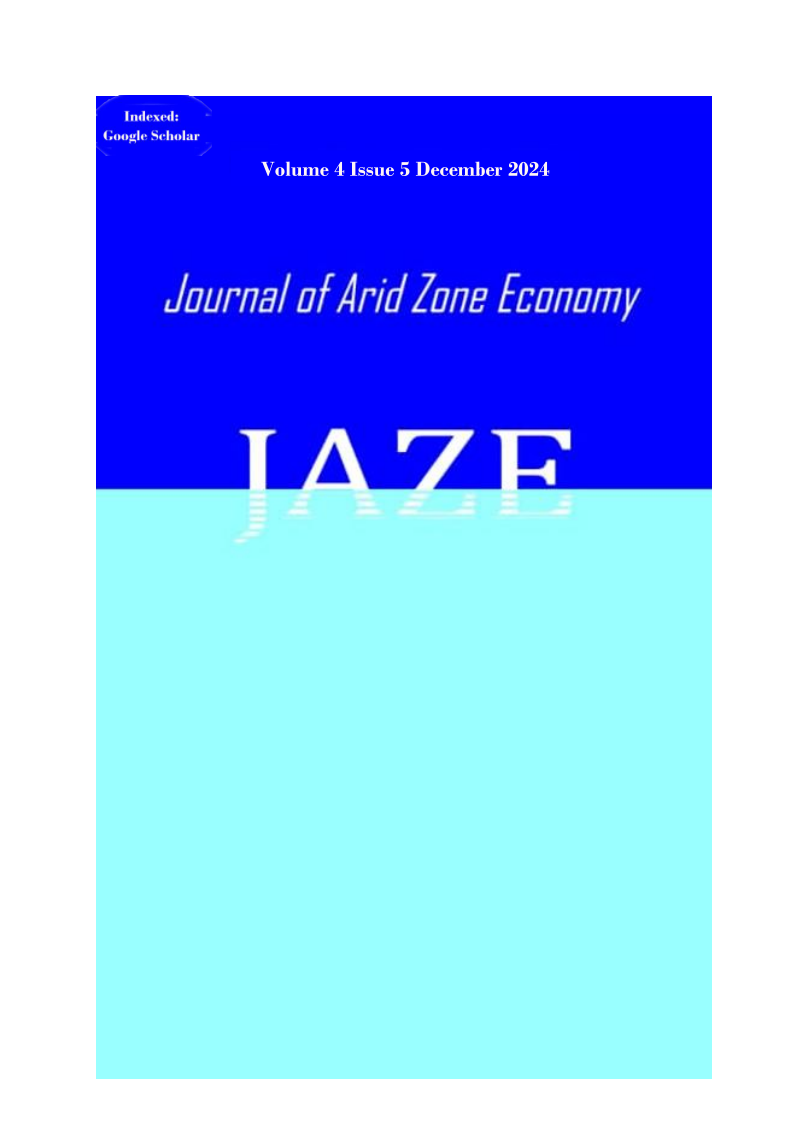Evaluating the Impact of Public Expenditure on Economic Growth in Nigeria (1980-2023): Using A Vector Autoregression (VAR) Approach
Keywords:
Public expenditure, Economic growth, Vector Autoregression, Causal relationship, NigeriaAbstract
This study investigates the dynamic relationship between public
expenditure and economic growth in Nigeria from 1980 to 2023,
grounded in Keynesian theory. Using data from the Central Bank of
Nigeria's Statistical Bulletin and National Bureau of Statistics, a Vector
Autoregression (VAR) model is estimated with real GDP as a dependent
variable, and total government expenditure, total government revenue,
inflation rate, budget deficit financing, and public debt services as
independent variables. VAR estimates reveal statistically significant
coefficients at 5%. Granger causality analysis indicates unidirectional
causality from public expenditure to economic growth, supporting
Keynesian theory which says government expenditure is an external
factor that can be leveraged to stimulate economic growth. Impulse
Response Function results show a negative response of economic growth
to public expenditure shocks in the short-run and long-run. Variance
Decomposition analysis reveals that public expenditure explains most of
the variation in economic growth. The study concludes that public
expenditure has significant positive and negative impacts on economic
growth in different periods. Recommendations include investing in
productive sectors, diversifying the economy, curtailing unnecessary
expenditure, promoting fiscal discipline, and reducing debt-financed
expenditure.

Downloads
Published
Issue
Section
License
Copyright (c) 2024 Journal of Arid Zone Economy

This work is licensed under a Creative Commons Attribution 4.0 International License.

